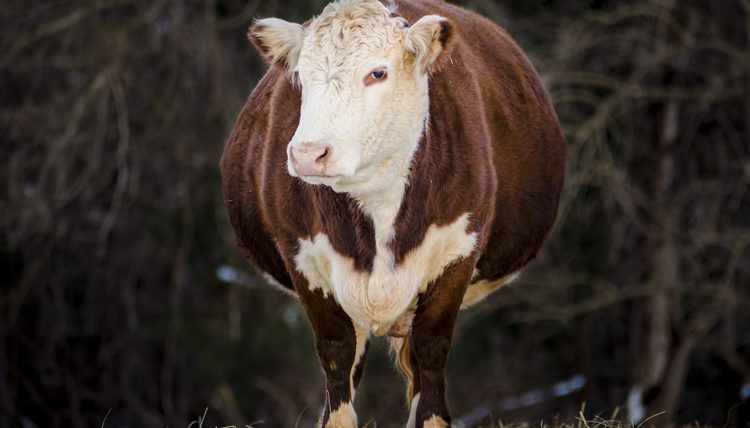

Bloat causes severe losses in the major dairying areas of Africa each year. Cow deaths and lower milk production are the result of an excessive accumulation of gas in the rumen (paunch) which can not be belched away by the cow. Bloat is generally associated with cows grazing pastures with a high legume content (clover or lucerne) in spring and autumn. A clover content of over 50% is considered dangerous, however problems have been seen at levels below this when new succulent growth is abundant. Occasionally young grasses can cause bloat if they contain large amounts of soluble protein. Farmers have found that hungry cows which gorge themselves when introduced to the pasture are particularly at risk. Mornings with dew on the grass or overcast, windy days are frequently associated with outbreaks.
Researchers have found that heifers are three times more likely to die of bloat than mature cows. Jerseys are three times more susceptible than Friesians and crossbreds are twice as susceptible.
Treatment and prevention are costly and it is important to remember that, apart from restricting access to dangerous pastures, there is no single method which will guarantee 100% protection from bloat. Many farmers use two or more of the following techniques to reduce the incidence of bloat on their farms.
Cattle with bloat may display the following signs: no longer grazing, a reluctance to move, distended left abdomen, appear distressed — vocalise, eyes bulging, strain to urinate and defaecate, rapid breathing — mouth may be open with tongue protruding and staggering.
Bloat can be Prevented through Pasture management. Legumes should be introduced into the diet gradually over several days. Avoid cows gorging new pastures by feeding them before letting them out to graze. Silage, hay or more mature pasture can be used to reduce the cow’s appetite. Initially, cows should only be allowed access to the pasture for short periods (one hour or so) and monitored closely during grazing and immediately after removal.
Cows will become accustomed to dangerous pastures over several days and will modify their intake to reduce bloating. Some farmers claim that mowing or slashing the pasture and allowing it to wilt for 2 – 3 hours will reduce the risk of bloat.
Three types of medication can be used to control bloat in cows.
Fermentation modifiers eg Anti-bloat capsule
Detergents eg Teric – there are over 300 different types of Teric (alcohol ethoxylate) on the market!
Anti-foaming agents eg Paraffinic oil and tallow.
The systems used to administer these chemicals aims at providing a continuous supply of medication over the whole grazing period. Movements within the gut ensure that the chemical is thoroughly mixed with the contents of the rumen, preventing the formation of a stable gas foam. As with any chemical, dose rates should be checked on the label and any withholding periods strictly adhered to.
 Contact Jaguza Support
Contact Jaguza Support